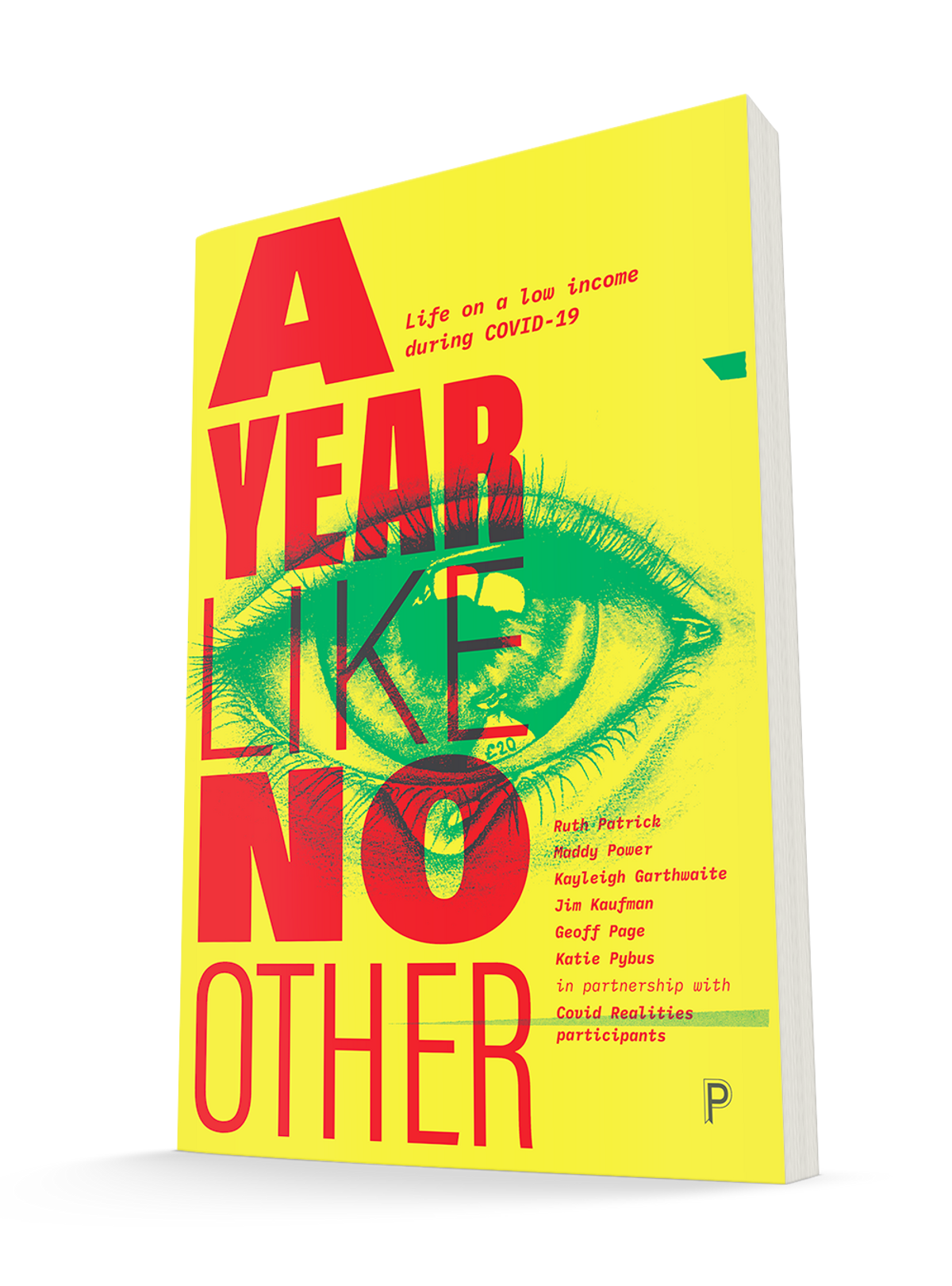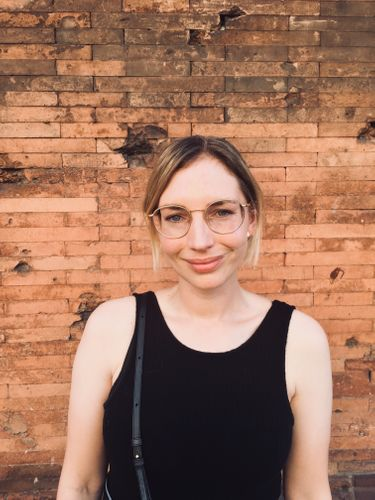Online book launch, Wednesday 19th October, 7.30pm - 8.30pm
Between 2020 and 2022, over 100 parents and carers living on a low came together online, sharing experiences in diaries, and working together to develop a manifesto for change.
A Year Like No Other: Life on a Low Income during COVID-19 is a book that emerged from this collaboration. Co-written with parents and carers, the book provides a compelling account of lives during a national crisis, within the context of the everyday crisis that poverty brings.
Please join us online as we launch this book, celebrating the work of parents and carers involved in Covid Realities, and discussing why change is now needed more than ever.
The launch will feature participants reading from the book, as well as responses from Kerry Hudson (author), Professor Kate Pickett (University of York) and John Harris (The Guardian). The launch will be co-chaired by Alison Garnham (CPAG) and Ruth Patrick.
Participants
Shirley: Disabled Lone Parent, Carer, Activist, Expert by Experience & Covid Realities Participant
Mahabuba lives in Tower Hamlets with her family and joined Covid Realites during the Covid-19 pandemic.
Caroline: I am a mum first, that is my most important job in life, and a childcare provider. I am a fighter and a strong believer in a society that values and respects everyone. I am a strong advocate for speaking up and teaching our young children how to question things and to look at the world with empathy and consideration. We never know what is going on in anyone else’s life and mind
Faith: Divorced, loved daughter and Mum of two. Never look back, your future is waiting for you!!
Mel is a married mother of three who has experienced life on a low income since childhood.
Emma: I am 28 years old, happily married with three children, I have always worked up until some unfortunate events landed me on benefits.
Emdad: I am a dad of 3 children who enjoys spending time with them, visiting local attractions and helping them with their homework, as well as teaching them the etiquette and manners to live in a diverse community. I believe that this life is short and whatever you get in your life, try to stay happy and help others who need it. This is the way we can give something back to our communities where we were raised and grown up.
Kim: I’m a mother to 4 sons and married, life was settled until covid stole my husbands job. I hope that reading our stories helps you to understand our plight and encourages you to do your own research.
Tayyaba: My name is Tayyaba, I live in London. I am a single parent of a lovely 11 year old boy. I started working in the NHS during the first wave of Covid. It was very hard as there was no child care support available; during this time me and my son supported each other. The Covid Realities project was a platform to have a voice to hopefully make policy makers to think about people as a human not as a number; and how to support them not only for now but to find a permanent solution to keep people going without being in stress, and able to live a happy life; so people can see their kids thrive and a good future for their children.
Ella: Media Spokesperson and Ambassador, gentle mother to twin daughters Bella and Ruby, age 3. Love travelling, boxing and football.
Aurora: Desperately hoping for change. Struggling, solo parent of two children.
Joseph: I am 46, disabled with a wife and 3 children, my eldest who is Autistic. I am on legacy benefits. I am working part time with my housing provider and volunteer nationally and locally with regard to housing rights and what we want to see from the government. I feel passionate about change for the better.
Stacey: 34 year old widowed parent of 2 young children.
Brian: I am a single parent father living on a low income with my daughter of school age. I am not asking for change solely for my own benefit. I ask for change as many people do, so our children can grow up in a caring and equal society so they have the best possible chance to make the best of their future lives and reach their full potential without feeling disadvantaged and not as appreciated as others in better financial and stable positions.
Tayeba: Hi my name is Tayeba and I am a mother of three children from Leeds.
The first 10 people to sign up to attend our launch will receive a free copy of the book.
Sign up to attend the launch here.
You can order A year like no other here. Attendees at the launch will be provided with a discount code for the book, or you can also get 25% off by joining the publisher’s mailing list.




